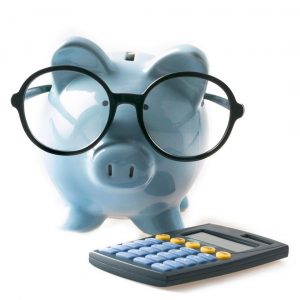
What is escrow and do you need it?
What is an Escrow Account?
An escrow account is an account set up with monthly payments to fund a home’s recurring costs. The most common recurring home costs are homeowner’s insurance premiums and property taxes. An estimated annual amount is generated and divided up into twelve monthly payments. The annual amount is reviewed each year and updated based on changes in amounts.
What are the benefits?
Escrow allows the borrower to set aside these payments in installments rather than pay them in one lump sum as they come due. Many homeowners find it convenient to pay their recurring costs through an escrow account. They can simply pay one bill each month to their mortgage lender rather than paying three bills to three organizations. Approximately 4 out of 5 homeowners have an escrow account as part of their mortgage.

Do I have to have an escrow account?
So, what about that other 1 in 5 that don’t have an escrow account? They opt out. The fact is, not every type of mortgage requires the borrower to hold an escrow account. In fact, only FHA and USDA loans require escrow accounts. Some lenders encourage their clients to utilize escrow because it can create peace of mind and prevent the shock that once-a-year large payments can bring.
What are the benefits of waiving escrow?
If you have a conventional loan and you are organized and good at managing schedules, waiving escrow might be more financially rewarding. Escrow accounts do not incur interest the way personal accounts like savings, money market, and CD accounts do. Instead of paying monthly escrow, one could set aside these funds in an interest-bearing account and let the funds accrue interest over the 12-month period they would have been paying escrow installments. For those with lower property taxes, this might be a drop in the bucket. But for those with high property taxes, it might be worth it to invest that money for a short period of time and pay it annually.
What to know about waiving escrow.
Some lenders charge fees to waive escrow accounts. They feel more secure with a loan that pays monthly into recurring fees than one that has annual large payments. You could find yourself paying around 0.25% of your loan amount to allow an escrow waiver.
Lenders will track your recurring payments even if you have waived escrow. If you fall behind, they will contact you. It is a means of protecting their investment in your loan and your investment in your home. Don’t worry. Your lender might be able to help you set up a repayment account.
Your lender could dictate your homeowner’s insurance company if you miss a payment. If there is a lapse in payments, your lender has the right to select your insurance company and policy if they desire. Its natural to shop insurance rates every now and then. If you do change insurance companies, be sure to notify your lender to avoid a misunderstanding.

The bottom line.
Choose what is best for you. If you have a FHA or USDA loan, you are required to have an escrow account. If you do not, be honest with yourself. Choose the option that makes sense for your personality and financial situation. Are you organized enough to manage a large once-a-year payment? Is the annual payment large enough to yield substantial interest? Would you rather manage one monthly payment or are you comfortable with a monthly payment and two annual payments? It’s a personal preference. And in many cases, you can change it if your situation changes.
